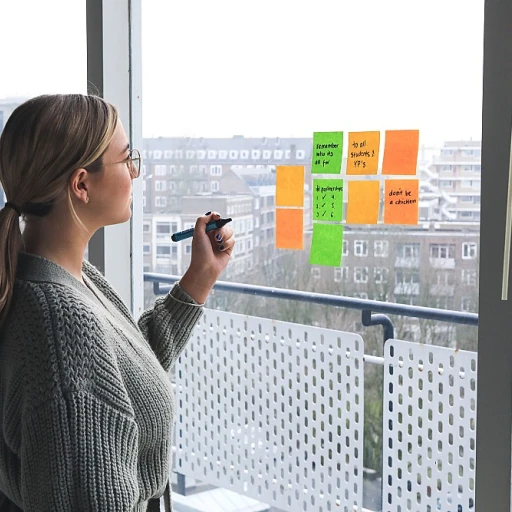
The Rise of Remote Work
The Transformation of Workspaces and Expectations
The contemporary landscape of work is undergoing a dramatic transformation as remote work shifts from being a temporary solution to a permanent fixture. This seismic shift is driven by technological advancements and changing market dynamics, demanding businesses to rethink traditional werk models. As companies adapt to this new era, several insights emerge on how this transformation impacts businesses and employees alike. Remote work, once considered a perk, has become a fundamental aspect of modern jobs. In the past, physical presence was crucial for nurturing brand and customer relationships, but now it's more about leveraging digital tools to enhance customer experience and employee engagement. Organizations have discovered that with the help of advanced communication tools, such as online surveys and segmentation customer analysis, they can still achieve full service offerings while employees enjoy greater work-life balance. The shift towards remote work bodes well for companies eager to redesign their brand strategy and explore new ways of conducting business. A surge in virtual networking and collaboration tools is creating novel opportunities for market companies to redefine their brand identities, employ innovative designs, and strategically align with customer preferences. Furthermore, remote work paves the way for more inclusive hiring practices, enabling businesses to tap into a diverse talent pool beyond the geographical confines of traditional offices. While the benefits of remote work are numerous, implementing a privacy policy that protects both customer and employee data is paramount. Businesses are tasked with establishing transparent policies, such as cookie policies, that respect privacy regulations and foster trust among stakeholders. As werk continues to evolve in the digital age, finding the right balance between remote and in-office work will be crucial for sustaining productivity and maintaining robust customer relationships. With the rise of remote work, the focus is increasingly shifting towards essential skills for a digital workspace. Developing such skills requires understanding the changing face of business operations, and investing in continuous learning is vital. For more on this topic, explore essential skills in the future workplace to better prepare yourself for tomorrow's werk demands.AI and Automation: Partners or Threats?
The Evolving Relationship Between Humans and Machines
In today’s rapidly changing business landscape, the dynamics between AI, automation, and human labor are garnering immense focus. As companies increasingly invest in these technologies, it becomes imperative to delve into the impacts they will have on various sectors and roles.
AI and automation are not merely technologies set to replace humans but rather tools that can enhance efficiency and productivity. By complementing human abilities, they pave the way for a hybrid workforce where machines handle repetitive tasks, allowing humans to engage in more creative and strategic roles. This approach can lead to a more fulfilling experience for employees, as they shift their focus away from monotonous tasks.
The AI Impact on Business Segments
The potential of AI and automation spans across various industries, influencing numerous market segments:
- Marketing and Sales: With advanced data analytics, understanding customer behavior and personalizing their interactions has never been more precise, thereby enhancing customer experience.
- Branding and Design: AI-driven insights are crucial for companies to create compelling brand strategies that resonate with their target audience.
- Customer Insights: Real-time, data-driven insights offer a competitive edge to businesses in Nashville, Tennessee, as well as the entire United States.
Overcoming the Barriers
Despite the promising outlook, key challenges remain in the transition to a more automated workforce. Companies must prioritize a coherent privacy policy to maintain customer trust and confidence. Additionally, businesses must remain vigilant about the ethical implications of using AI in decision-making processes. For employees, adapting to AI means acquiring new skills and adjusting to role shifts, which could be aided by continuous learning and unlocking the power of role-playing in driving innovation.
This intricate balance between technology and workforce serves as a critical narrative in shaping the future of work. As market dynamics continue to evolve, businesses must foster an environment that embraces technology while valuing the unique contributions of real people.
Skills of the Future: What to Focus On
Developing Future-Ready Skills
In an era where the nature of work is constantly evolving, identifying and cultivating the skills that will dominate the market is paramount. The integration of AI and automation has redefined how tasks are accomplished, urging businesses and employees alike to stay agile and adaptable. While technical skills related to data analysis, coding, and technology design remain critical, they are just one part of the equation. To thrive in tomorrow's business environment, both hard and soft skills are indispensable. Here are some key areas to focus on:- Digital Literacy: Understanding digital tools and platforms is crucial, as employees increasingly engage in remote work and online communication frameworks. Businesses that invest in training their teams on digital skills will likely see enhanced productivity and customer experience.
- Critical Thinking and Creativity: As AI takes over routine jobs, nurturing these skills becomes increasingly critical for problem-solving and innovation. Workers in the insights association and market company sectors, for example, will benefit significantly from these capabilities when developing brand strategies or segmenting customers.
- Emotional Intelligence: Soft skills such as empathy, communication, and teamwork create a more collaborative and inclusive workplace. Individuals with strong emotional intelligence establish better relationships with colleagues and clients alike, refining branding efforts and customer interactions.
- Adaptability and Continuous Learning: With industries shifting rapidly, employees must be open to learning and adapting. Continuous professional development and a willingness to pivot are essential traits for career longevity in today's competitive market.
The Changing Face of Leadership
The Evolution of Leadership in a Digital Era
The future of werk is not just about remote work or the integration of AI and automation; it’s also about how leadership is transforming in this digital age. As companies pivot to more flexible and tech-driven environments, the role of a managing director or any leader is undergoing significant changes. This evolution is crucial for businesses seeking to maintain a competitive edge in a rapidly shifting market.
Leadership today requires a deep understanding of data and insights to make informed decisions. In a world where online surveys and real-time data are abundant, leaders need to leverage these tools to enhance customer experience and brand strategy. This means that leaders must be adept at segmentation customer strategies and able to interpret insights to guide their teams effectively.
Moreover, the traditional top-down approach is being replaced by a more collaborative and inclusive style. Employees werk in the modern industry market are looking for leaders who prioritize transparency and foster an environment of trust and innovation. This shift is evident across various sectors in the United States and beyond, where leaders are now expected to act as facilitators rather than mere decision-makers.
Another critical aspect of modern leadership is adaptability. As the business landscape continues to evolve, leaders must be agile, ready to pivot strategies based on new market company trends or changes in customer demands. This adaptability extends to understanding and implementing policies such as privacy policy and cookie policy, which are becoming increasingly important in maintaining customer trust.
Finally, nurturing mental health and well-being among employees is becoming a central focus for leaders. With the rise of remote work and digital communication, ensuring that employees feel supported and connected is paramount. This requires leaders to be empathetic and proactive in addressing the mental health challenges that come with a digital werk environment.
In conclusion, the changing face of leadership in the digital age is about embracing new tools, fostering a culture of collaboration, and being adaptable to industry shifts. As companies continue to navigate these changes, leaders who can effectively balance these elements will be best positioned to drive success and innovation.
Mental Health in the Digital Age
Prioritizing Mental Well-being in a Digital World
As companies and employees navigate the evolving landscape of remote werk and technological advancements, mental health has emerged as a crucial component of the modern business environment. The shift to digital platforms, while offering flexibility and increased productivity, has also introduced unique challenges that affect the mental well-being of employees. It's imperative for companies to recognize and address these challenges to maintain a healthy and productive workforce.
In the digital age, the boundary between work and personal life has blurred, leading to an increase in stress and burnout. Employees, now more than ever, need support systems that promote a balanced lifestyle. Businesses can take proactive steps to create a supportive werk environment by implementing policies that encourage regular breaks, flexible werk hours, and access to mental health resources.
Additionally, fostering a culture that values open communication and psychological safety is essential. Employees should feel comfortable discussing their mental health concerns without fear of stigma or negative repercussions. This approach not only enhances employee satisfaction but also contributes to improved customer experience and overall brand strategy.
Companies that invest in the mental health of their workforce are likely to see positive outcomes in terms of employee retention and productivity. As the market continues to evolve, the insights gained from understanding the connection between mental health and werk performance will be invaluable. By prioritizing mental well-being, businesses can ensure they remain competitive and responsive to the needs of their employees and customers alike.













